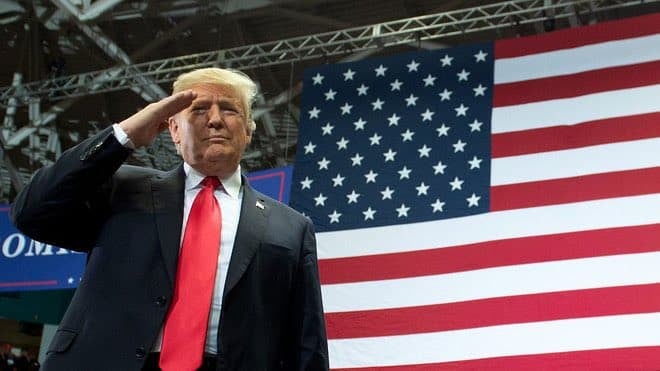In recent years, prominent political figures, notably Kamala Harris and Joe Biden, have labeled former President Donald Trump as a significant threat to democracy. However, this portrayal often overlooks the very real danger he faces from numerous assassination attempts against him, some linked to foreign actors like Iran. Reports from the FBI indicating that Iran has posed threats to Trump’s life should be met with alarm across the political spectrum; nonetheless, mainstream media coverage has tended to minimize the severity of these incidents. Meanwhile, segments of the Democratic alignment, particularly on social media, often mock or criticize Trump for highlighting these threats rather than addressing them seriously, which could further ignore the implications these threats pose to public safety and the democratic process itself.
The prevailing narrative among many Americans suggests that there have only been a couple of attempts on Trump’s life, but in fact, the number exceeds four documented plots. These incidents starkly illustrate a persistent security threat. The first known assassination attempt occurred during a Las Vegas rally in 2016, when a British national attempted to disarm a police officer to use his gun against Trump. More recently, in July 2024, Trump was shot in the ear during a rally in Pennsylvania, resulting in one death and several injuries. Further attempts included a plot by a Pakistani national with alleged Iranian ties and an individual arrested with an AK-47 at Trump’s Florida golf course. The uptick in assassination attempts over recent years signals a critical failure to secure high-profile political figures, raising questions about the safety protocols in place and the overall state of national security.
Repeated assassination threats against political leaders not only matter on an individual level; they have broader ramifications for the functioning of democracy itself. Democracy thrives on the principles of peaceful power transfer and open dialogue, making it imperative that leaders and citizens can engage without fear of violence. When assassination plots disrupt this crucial dynamic, they not only undermine the stability of democratic institutions but also perpetuate a culture of fear that can deter citizens from partaking in the political process. Consequently, this atmosphere can lead to restrictive environments for free speech, resulting in self-censorship as individuals become increasingly wary of expressing their political views or running for office.
Moreover, this series of attacks against Trump could potentially amplify conspiracy theories, particularly among his supporters, who might perceive the opposition as complicit in the threats against him. A lack of acknowledgment from the Biden administration regarding these threats only serves to fuel speculation about intentions behind the silence. Such dismissals may further reinforce narratives that evoke fear and suspicion within a divided electorate, cultivating an environment ripe for conspiracy thinking, which is detrimental to both the political discourse and the public’s trust in government institutions. As fears escalate around political violence, they may inadvertently push certain groups to engage in violent opposition, creating a cyclical and unstable climate.
The persistence of assassination attempts represents a challenge to the rule of law, a foundational tenet of democracy. Effective law enforcement and security are essential to ensuring the safety of all politicians and the citizens who participate in the electoral process. If individuals consistently target political figures, it may highlight vulnerabilities in democratic governance that need to be urgently addressed. Moreover, the potential failure to secure prominent leaders threatens public trust in democratic institutions, potentially leading citizens to disengage from the political process altogether, further exacerbating polarization and preventing social and political unity.
As the next election cycle approaches, it is particularly crucial for the government to prioritize the protection of political figures like Trump to maintain the integrity of the electoral process. Ensuring that assassination threats are taken seriously could help mitigate further divisions within the electorate and foster an environment conducive to fair election outcomes. The implications of inaction extend beyond national borders; assassination attempts can undermine the U.S.’s image as a stronghold of democracy, emboldening authoritarian regimes and discouraging global alliances. In the current context, where the U.S. faces tensions with formidable adversaries like Russia, China, and Iran, the stakes are incredibly high. Any perception of weakness could not only affect domestic stability but may also encourage hostile actors to capitalize on the situation, potentially leading to greater instability both at home and abroad.

